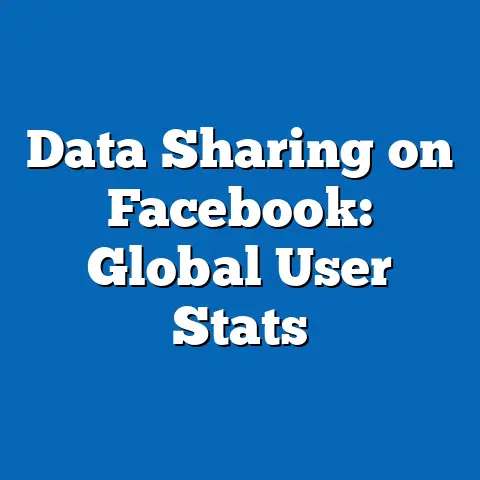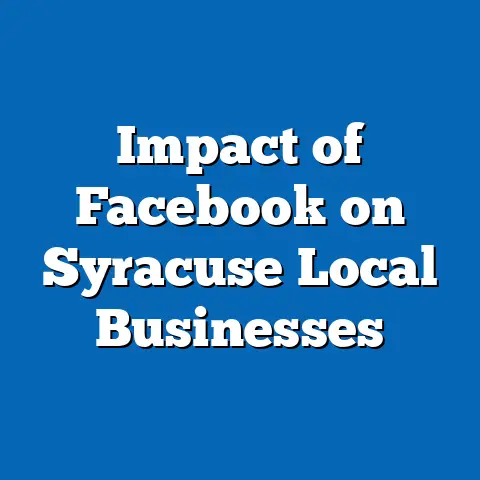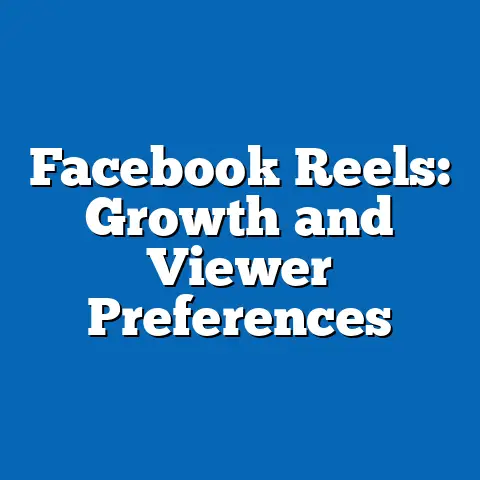Privacy Concerns in Facebook Users
As we move further into 2024, the intersection of technology and personal privacy remains a critical concern, especially for users of social media platforms like Facebook, now under the Meta umbrella. Amidst evolving data protection regulations, high-profile data breaches, and growing public awareness, the concept of a “best option” for privacy emerges as a guiding framework for users seeking to balance connectivity with security. This “best option” is not a one-size-fits-all solution but a personalized, informed approach to privacy that prioritizes user agency, transparency from platforms, and adherence to robust data protection standards.
The defining characteristics of this “best option” include proactive user education on privacy settings, the adoption of stringent data minimization practices by platforms, and the integration of privacy-by-design principles in tech development. Historically, privacy concerns on platforms like Facebook trace back to the early 2000s, when the platform’s rapid growth outpaced its ability to safeguard user data, culminating in scandals like the 2018 Cambridge Analytica incident. Societally, the implications of adopting a “best option” framework are profound, as it could reshape user trust, influence regulatory policies, and redefine how tech giants operate in a data-driven economy.
Historical Context: The Evolution of Privacy Concerns on Facebook
Facebook’s journey from a college networking site in 2004 to a global behemoth with over 3 billion monthly active users by 2023 has been marked by significant privacy challenges. In its early years, the platform operated with minimal oversight, often defaulting to public sharing settings that exposed user data without explicit consent. This laissez-faire approach led to early criticisms, such as the 2006 backlash over the introduction of the News Feed, which users felt invaded their privacy by broadcasting their activities.
The turning point came with the 2018 Cambridge Analytica scandal, where data from millions of Facebook users was harvested without consent for political advertising purposes. This event not only eroded public trust but also catalyzed global regulatory responses, such as the European Union’s General Data Protection Regulation (GDPR) and the California Consumer Privacy Act (CCPA). These regulations marked a shift toward holding tech companies accountable for data misuse, setting the stage for ongoing debates about privacy in the digital realm.
By 2024, Facebook (now Meta) has implemented numerous privacy features, such as enhanced data encryption and granular privacy controls, in response to past criticisms. However, incidents like the 2021 data leak affecting over 500 million users remind us that vulnerabilities persist. This historical backdrop underscores the need for a “best option” framework, as users and regulators alike demand greater transparency and control over personal information.
Privacy Concerns in 2024: Key Issues for Facebook Users
As of 2024, privacy concerns among Facebook users center on several critical issues, reflecting both technological advancements and societal shifts. First, the proliferation of targeted advertising remains a contentious topic, with many users uneasy about how their data—ranging from browsing habits to personal interests—is used to tailor ads. Despite Meta’s efforts to provide ad transparency tools, a 2023 Pew Research Center survey found that 68% of social media users still feel uncomfortable with the extent of data collection for advertising purposes.
Second, the rise of artificial intelligence (AI) and machine learning technologies has amplified concerns about data processing. Meta’s use of AI to analyze user behavior for content moderation and personalization raises questions about the depth of surveillance embedded in the platform. While AI can enhance user experience, it also poses risks of unintended data exposure, especially when algorithms are not fully transparent.
Third, data breaches and third-party access continue to threaten user privacy. Even with stricter policies, the sheer volume of data stored by Meta makes it a prime target for cyberattacks. A 2024 report by Cybersecurity Ventures estimates that data breaches will cost global businesses $10.5 trillion annually by 2025, highlighting the scale of the challenge for platforms like Facebook.
Finally, the integration of Facebook with other Meta services, such as Instagram and WhatsApp, has sparked concerns about cross-platform data sharing. Users often lack clarity on how their information flows between these services, despite Meta’s assurances of data compartmentalization. These issues collectively underscore the urgency of adopting a “best option” approach that empowers users to navigate this complex landscape.
Generational Differences in Privacy Concerns
Generational dynamics play a significant role in shaping attitudes toward privacy on Facebook, as different age cohorts have unique experiences with technology and distinct cultural contexts. Baby Boomers (born 1946–1964), for instance, often exhibit caution due to their later adoption of digital platforms. A 2023 AARP study found that 72% of Boomers on social media are concerned about identity theft, prompting many to limit their online presence or avoid sharing personal details.
Generation X (born 1965–1980), having witnessed the internet’s early evolution, tends to balance skepticism with practicality. They are more likely to adjust privacy settings but may not fully disengage from platforms like Facebook due to professional or social needs. Research from Nielsen in 2023 indicates that Gen X users are particularly wary of data misuse by third parties, often citing concerns about financial scams.
Millennials (born 1981–1996), as digital natives, display a nuanced relationship with privacy. While comfortable sharing aspects of their lives online, they are also vocal about corporate accountability, often advocating for stronger data protections. A 2024 Deloitte survey revealed that 65% of Millennials have adjusted their Facebook privacy settings in response to data scandals, reflecting a proactive yet engaged stance.
Generation Z (born 1997–2012), raised in an era of ubiquitous connectivity, often prioritizes authenticity over privacy but is highly aware of digital risks. They are more likely to use temporary content features like Stories to limit long-term data exposure. However, a 2023 Common Sense Media report noted that 58% of Gen Z users feel resigned to data collection as an inevitable part of online life, highlighting a generational tension between convenience and control.
These differences illustrate that a “best option” for privacy must be adaptable, catering to varying levels of tech literacy, risk tolerance, and cultural values across generations. Platforms like Facebook need to offer tailored tools and education to address these diverse needs, while users must be encouraged to take ownership of their digital footprints.
Technological Factors: Innovations and Challenges
Technology is both a driver and a barrier in addressing privacy concerns on Facebook in 2024. On one hand, advancements like end-to-end encryption for Messenger and improved two-factor authentication provide users with stronger safeguards against unauthorized access. Meta’s investment in privacy-focused tech, such as its 2023 rollout of AI-driven anomaly detection for data breaches, signals a commitment to proactive security.
On the other hand, emerging technologies like the metaverse—Meta’s ambitious vision for immersive digital spaces—introduce new privacy risks. The collection of biometric data, spatial mapping, and behavioral tracking in virtual environments could exponentially increase the volume of sensitive information at stake. A 2024 MIT Technology Review article warned that metaverse platforms might become “data goldmines” if privacy protections lag behind innovation.
Additionally, the growing use of third-party apps and integrations on Facebook creates potential vulnerabilities. While these tools enhance functionality, they often require access to user data, sometimes without clear disclosure. The “best option” framework in this context involves not only leveraging cutting-edge security tech but also ensuring that users are informed about the risks of interconnected digital ecosystems.
Economic and Social Dimensions of Privacy
Economically, privacy concerns on Facebook are tied to the platform’s business model, which heavily relies on data-driven advertising. In 2023, Meta reported advertising revenue of over $130 billion, underscoring the financial incentive to collect and analyze user data. This creates a fundamental tension between user privacy and corporate profitability, as stricter data limits could reduce ad targeting precision and, consequently, revenue.
Socially, privacy issues on Facebook influence trust and community dynamics. High-profile scandals have led to a decline in user confidence, with a 2024 Edelman Trust Barometer survey showing that only 39% of global internet users trust social media platforms with their data. This erosion of trust can fragment online communities, as users may withdraw from platforms or self-censor to protect their information.
Moreover, privacy concerns intersect with broader social issues like misinformation and surveillance. For instance, the use of Facebook data for political manipulation, as seen in past elections, raises ethical questions about the societal impact of unchecked data practices. A “best option” approach must therefore address these economic and social dimensions by advocating for sustainable business models and fostering a culture of digital trust.
Regulatory Landscape and Its Impact
The regulatory environment in 2024 continues to shape privacy practices on Facebook, with governments worldwide tightening oversight of tech giants. The GDPR, now in its sixth year, remains a gold standard, imposing hefty fines—up to 4% of annual global revenue—for non-compliance. Meta has faced multiple GDPR penalties, including a €1.2 billion fine in 2023 for data transfer violations, signaling that regulators are serious about enforcement.
In the United States, the absence of a federal privacy law persists, though state-level regulations like the CCPA and Colorado Privacy Act are gaining traction. These laws grant users rights to opt out of data collection and request data deletion, pressuring platforms to enhance transparency. However, a 2024 report by the Electronic Frontier Foundation noted that fragmented state laws create compliance challenges for companies like Meta, potentially leading to inconsistent user experiences.
Globally, emerging economies are also stepping up, with countries like India and Brazil implementing data protection frameworks modeled on GDPR. These regulations collectively push toward a “best option” scenario where platforms prioritize user rights over data exploitation, though enforcement remains uneven. For Facebook users, staying informed about their legal rights is a critical component of navigating privacy in this evolving landscape.
Cultural Shifts: Changing Perceptions of Privacy
Culturally, perceptions of privacy have shifted significantly over the past two decades, influencing how Facebook users engage with the platform in 2024. In Western societies, there is a growing emphasis on individual autonomy, with users demanding greater control over their digital identities. This is evident in the popularity of privacy-focused campaigns like #DeleteFacebook, which resurged in 2023 following new data controversies.
In contrast, collectivist cultures in parts of Asia and Africa may prioritize social connectivity over personal privacy, leading to different user behaviors on platforms like Facebook. A 2023 study by the University of Oxford found that users in these regions are more likely to share personal information publicly, viewing it as a means of building community rather than a risk. However, rising awareness of data misuse is beginning to challenge these norms, creating a global convergence toward privacy consciousness.
These cultural nuances highlight the importance of a “best option” framework that respects diverse values while promoting universal standards of data protection. Platforms must adapt their policies and communication strategies to align with cultural expectations, ensuring that privacy tools are accessible and relevant to all users.
Implications for Society, Culture, and the Workplace
The privacy concerns surrounding Facebook in 2024 have far-reaching implications across multiple domains. Societally, the ongoing tension between data collection and user rights could redefine the social contract between individuals and tech companies. If trust continues to erode, we may see a shift toward decentralized or privacy-first platforms, challenging Meta’s dominance in the social media space.
Culturally, the normalization of surveillance through platforms like Facebook risks desensitizing users to data exploitation, particularly among younger generations. This could perpetuate a cycle of over-sharing and vulnerability unless countered by robust education and advocacy for digital literacy. The “best option” framework can play a pivotal role here by encouraging critical engagement with technology.
In the workplace, privacy concerns on Facebook intersect with professional boundaries, as employers increasingly monitor social media activity for hiring and performance evaluations. A 2024 SHRM survey found that 45% of HR professionals check candidates’ social media profiles, raising ethical questions about data use in employment contexts. Employees, in turn, must navigate the balance between personal expression and professional visibility, often relying on privacy settings to manage their online presence.
Toward a “Best Option” Framework: Practical Steps for Users and Platforms
Achieving a “best option” for privacy on Facebook in 2024 requires collaborative effort from users, platforms, and policymakers. For users, the first step is education—understanding privacy settings, recognizing phishing attempts, and regularly auditing connected apps. Resources like Meta’s Privacy Center and third-party guides from organizations like the Electronic Privacy Information Center (EPIC) can empower users to take control of their data.
For platforms, adopting privacy-by-design principles is essential. This means embedding data protection into product development, minimizing data collection, and providing clear, jargon-free explanations of policies. Meta’s 2023 commitment to reducing data retention periods is a step in the right direction, but consistent follow-through and third-party audits are necessary to build trust.
Policymakers, meanwhile, must prioritize harmonized regulations that protect users without stifling innovation. Initiatives like the EU-US Data Privacy Framework, launched in 2023, aim to facilitate secure data transfers, but broader international cooperation is needed to address global platforms like Facebook. A “best option” framework ultimately hinges on accountability, transparency, and user empowerment as non-negotiable pillars.
Conclusion: Looking Ahead with Cautious Optimism
As we navigate privacy concerns among Facebook users in 2024, the “best option” framework offers a promising path forward, emphasizing informed choice, corporate responsibility, and regulatory oversight. While historical missteps and ongoing challenges remind us of the fragility of digital trust, advancements in technology and growing public awareness provide hope for a more secure online future. However, uncertainties remain—will Meta fully pivot toward user-centric policies, and can global regulations keep pace with technological innovation?
Looking ahead, the trajectory of privacy on Facebook will likely be shaped by user activism, competitive pressures from privacy-focused platforms, and the evolving cultural landscape. Generational shifts, particularly the influence of Gen Z’s digital-native perspective, may drive demand for radical transparency and alternative social media models. Yet, the balance between connectivity and privacy will remain a delicate dance, requiring continuous adaptation from all stakeholders.
In embracing a “best option” approach, we can foster a digital ecosystem where privacy is not a luxury but a fundamental right. For now, the onus is on users to stay vigilant, on platforms to prioritize ethics over profit, and on society to advocate for a future where technology serves humanity without compromising personal sovereignty. The road ahead is complex, but with informed action, 2024 could mark a turning point in the fight for digital privacy.






